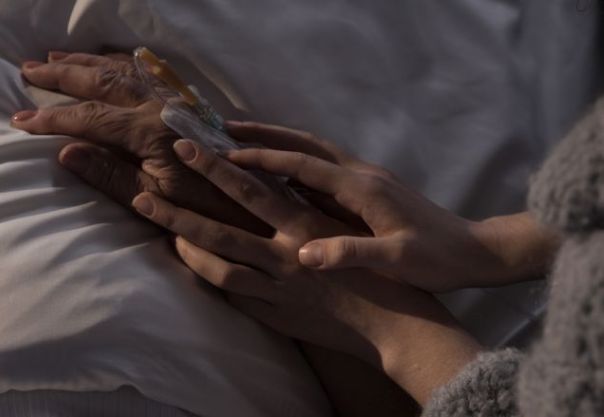Palliative Care: Need of the Hour
M3 India Newsdesk Mar 27, 2017
Palliative care is a medical speciality that caters to patients suffering from debilitating or terminal diseases. Healthcare providers, while applying scientific and medical advances to improve disease treatment and management, should keep in mind that the right to die with dignity is as important as the right to live with dignity.

In India, nearly 6 million, of an estimated 9 million annual deaths, would benefit from palliative care. The abysmal doctor: patient ratio means doctors prioritise disease treatment over palliative care.
World Health Organization (WHO) defines palliative care as an approach that improves the quality of life of patients and their families facing the problems associated with life-threatening illness, through the prevention and relief of suffering by means of early identification and impeccable assessment and treatment of pain and other problems, physical, psychosocial, and spiritual.
Palliative care has 3 goals:
- To provide relief from physical and emotional distress.
- To empower communication between the physician and the patient.
- To coordinate the best care for the patient in the hospital or long-term (at home).
Palliative care providers estimated to be 138 organisations in mainly focused on cancer patients but is increasingly becoming relevant for other patients suffering from AIDS, multi-organ failure, muscular dystrophy, heart disease, end-stage renal disease, and neurological disorders such as dementia, Alzheimer’s disease, Parkinson’s disease. When faced with an incurable disease, palliative care administered by healthcare professionals and family members assist the patient to maintain as normal a life as possible in order to live and die with dignity.
In India, the palliative care movement started in the mid-80s, with a few cancer centres in Bangalore, Mumbai, Delhi, Ahmedabad and Trivandrum; eventually leading to the establishment of the Indian Association of Palliative Care (IPAC) in 1994. Kerala has become the frontrunner of this movement — providing two-thirds of the country’s palliative care services owing to a combination of supportive state policies including government funding and relaxed regulations for the use of morphine in palliative care.
The Calicut model is a WHO demonstration project for low-cost, high-quality palliative care through coordination between government and non-governmental organisations.
Challenges To Palliative Care
The Narcotic Drugs and Psychotropic Substances (NDPS) Act of 1985 makes it difficult to access morphine. In 2014 an amendment eased morphine use; however, palliative care providers have to ensure that state governments implement these amended rules. Dr Nagesh Simha, president of the Indian Association of Palliative Care in Bangalore points out that most hospitals do not stock morphine, not even cancer hospitals and medical colleges. Consequently, doctors who are not trained to utilise and administer morphine for pain management are reluctant to prescribe morphine.
Other barriers include lack of medical insurance coverage for palliative care as well as a culture that discourages open discussion regarding approaching death resulting in costly, fruitless medical interventions.
Psychiatrist Dr Vijaylakshmi of Cadabams Hospitals, Bengaluru explains, “Families are not always open to the idea of palliative care. Acceptability depends on several factors; most people worry about what relatives and friends will think of them for choosing to hire a palliative care service instead of providing care themselves. Some people also feel that choosing such care will reveal the underlying problem and draw unwelcome attention from the extended family; this makes them uncomfortable.”
The Road Ahead
The recent resolution by the 67th World Health Assembly, 2014 that calls upon all its member states “to ensure that palliative care is an integral component of all relevant global disease control and health system plans, including those relating to non-communicable diseases and universal health coverage” may serve as a major advocate of palliative care in India.
The palliative care unmet market opportunity is being recognised and addressed by healthcare providers such as CanSupport, Karunashraya, Jeevodaya Hospice, Satseva of Care India Medical Society, Lakshmi Pain and Palliative Care Trust and Health Care at Home.
In terms of the medical professional's preparedness for fulfilling this unmet patient need, Dr Vatsala Kashi, a physician at Ramakrishna Hospital, Bengaluru explains, “While awareness (among Indian doctors) is fair, the resources available are quite limited because palliative care is not yet recognised as a speciality by itself. It’s seen more as an area that calls for paramedical expertise.”
In India, palliative care has not come of age due to lack of a comprehensive legislative and institutional policy. Palliative care in India requires comprehensive legislative, education, training, and research policies to make it a fully efficient medical speciality.
Learn more about this topic at:
-
Exclusive Write-ups & Webinars by KOLs
-
Daily Quiz by specialty
-
Paid Market Research Surveys
-
Case discussions, News & Journals' summaries